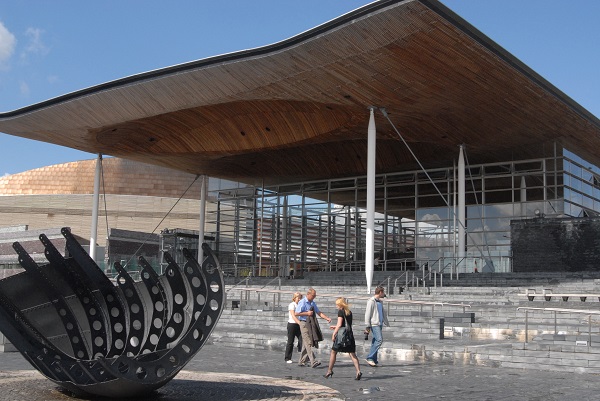 Bevan Foundation
Bevan Foundation 
In the last of this series of articles marking the 20th anniversary of devolution, Victoria Winckler looks at the lessons to be learned for the future.
Devolution has had a lot of ups and downs over the last 20 years. As a brand new institution, introduced with a wafer-thin majority, it is inevitable that it got a few things not quite right in its early days. The next 20 years start on a much stronger footing. There is substantial support for the Assembly itself, not to mention a growing independence movement. It now has two of the vital requirements of any devolved administration, namely the ability to pass laws and the ability to raise funds, albeit it limited. And – crucially – it has 20 years of experience on which to build.
So what are the lessons the Assembly and Welsh Government should learn?
Concentrate on the big issues
At a presentation I gave a little while ago, a member of the audience asked why Welsh policy was so ‘faddy’. He referred to the plethora of mostly small-scale ‘schemes’ that came in with a fanfare before being quietly dropped after a few years. Such schemes are often the intangible equivalent of cutting ribbons to open roads – a way for a Minister to show that he or she is ‘doing something’. Sadly while there will be some people who benefit, the impact is rarely if ever of sufficient scale to shift the dial. There is no end of such schemes littering Cathays Park.
In the next 20 years, the focus must be on the big issues – improving people’s health, better education at all ages, a resilient economy and a sustainable environment. These are big challenges that require major, structural changes in our economy and society. These changes take a long time. Ironically the relative political stability of the last 20 years could have allowed the Welsh Government to embark on long-term reforms.
In the next 20 years, parties should think about 5-10 year programmes of government, seek the transformation we urgently need and give up on the small stuff.
Don’t believe your own press releases
The Welsh Government like most others is very good at churning out glowing press releases. But guess what – nobody believes them. So we hear about the thousands more people in employment, at the same time as around one in five young men are out of work in some parts of Wales. We hear about improvements in NHS waiting times, at the same time as people have to ring hundreds of times to get a GP appointment.
Of course there’s a good news story inside every crisis if you look hard enough. But repeatedly telling the Welsh public that the good times are here doesn’t make the Welsh Government look good – they just look out of touch with reality.
In the next 20 years, some recognition of the challenges faced by ordinary people would keep Ministers grounded and might help to restore public faith in politics.
Deliver, don’t day-dream
The early days of the Welsh Government were marked by what Paul Chaney has described as ‘declaratory’ approach. By this he means that a very ambitious target is declared, but is accompanied by minimal details of how the target is to be achieved. There is no shortage of examples: think of ending child poverty, closing the GDP gap, improving PISA results to the global top 20, or cutting smoking rates to the lowest in the world, to name but a few. It is no surprise whatsoever that every single one of these aspirations has fallen quietly by the wayside.
This is not to say that the Welsh Government shouldn’t be ambitious in what it wants to achieve. It absolutely should. But if it is to have big ambitions it must make sure it understands what needs to change, how best to change it, how much it will cost and how long it will take. Having SMART targets is the bread and butter how most organisations do business – the Welsh Government is no exception.
The next 20 years must see the gap between rhetoric and reality disappear. Policy documents should be up to the job and politicians should demand clear delivery plans.
Scrutiny, scrutiny, scrutiny
The separation of the Welsh Government from the Assembly that occurred in 2006 enabled AMs and Committees to hold the Welsh Government to account. Unfortunately it’s proved to be an uphill struggle. Assembly Committees – perhaps with the notable exception of the Public Accounts Committee – have generally not robustly challenged Ministers’ performance. Too often, AMs have done no more than read out questions prepared for them. Equally, witnesses have too often read out pre-prepared answers in response. The process was – and is – dull and stones are left un-turned.
Questions to Ministers are also an important part of the scrutiny process. They too are often spectacularly dull, with platitudes replacing answers. Questions should see Ministers squirm, not engage in a matey chat.
The next 20 years must see much better and more effective scrutiny. This almost certainly means having more AMs, moving away from set-piece evidence sessions, and fostering a culture of challenge.
In the next 20 years, Brexit, demographic change, climate change, technological change and growing inequality all bring enormous challenges. In 2039, the UK may well no longer exist in its current form. There could be mass automation of many routine activities, drones and automated vehicles will be commonplace. Global food shortages are predicted, and many of Wales’ coastal towns could be under water. Whether the Assembly – and Welsh Government – are up to meeting these challenges remains to be seen.
What’s certain is that they must learn the lessons of the last 20 years to stand a chance.
Victoria Winckler is Director of the Bevan Foundation.


